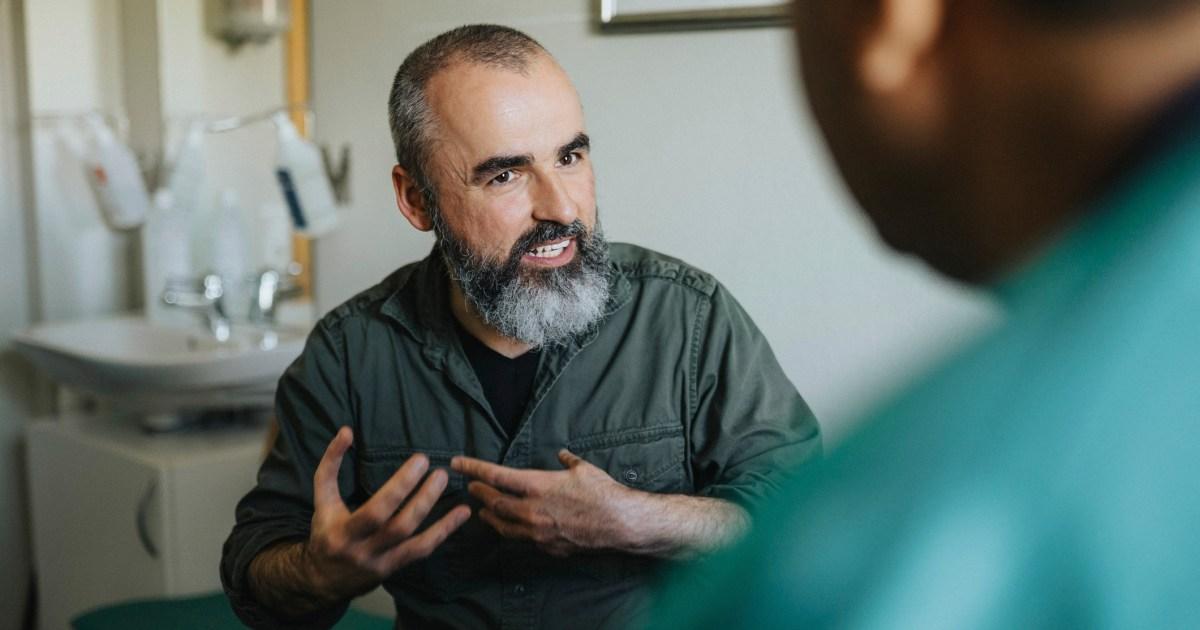Preparing for Your Appointment
Preparing for your appointment should involve gathering evidence and jotting down your symptoms, as advised by Dr Elise Dallas, a GP specialising in women’s health at the London General Practice.
Dr Dallas emphasises the importance of knowing your personal medical history, including contraceptive and gynaecological history, stress levels, current medications, and family medical history. She suggests, ‘Consider your ideas, concerns, and expectations before the appointment.’ GPs are trained to address these aspects using the ICE model (patients’ ideas, concerns, and expectations). Understanding what matters most to you can greatly assist your healthcare provider in providing effective care.
Staying Informed
Educate yourself about your health condition. Keeping up with the latest research and treatments can empower you to make informed decisions. Health journalist Sarah Graham advises: ‘If you suspect a particular condition, it’s valuable to ask: “Could it be this?’” This question prompts doctors to elaborate on their thought process, fostering a collaborative relationship and mutual understanding between you and your healthcare provider.’
Bringing a Supportive Person
If you’re anxious or might miss important information, bring someone you trust to support you. They can help take notes, ask additional questions, and advocate for you if needed. ‘I’m a very vocal advocate. I’m pretty feisty,’ disabled journalist Lucy Webster says. ‘But I still take my dad because he is a white, non-disabled man, despite being nearsighted, and they take him seriously. It’s not me failing to advocate for myself; that is how I advocate for my health.’

Having someone there to support you is key (Picture: Getty Images)
Listen to Yourself
Trust your instincts during the appointment. ‘Always remember that you are the expert in your body,’ Lucy adds. ‘Doctors might have medical degrees, training, and expertise. But they don’t live in your body, you live in your body. You will know if it feels different.’
Finding Support Groups
Joining a support group or contacting a specialised charity can connect you with others who have similar health conditions. They can offer recommendations for healthcare providers and share effective strategies. Alesha De-Freitas, director of policy, research and advocacy at the Fawcett Society tells Metro: ‘The participants of our study found support groups and charities really valuable. They felt less isolated.’
Taking Notes
During the appointment, take notes to remember important details and instructions. You can also ask your doctor to document significant conversations for accountability. Lucy suggests: ‘If healthcare professionals are dismissing or ignoring what you’re saying, a really effective thing I learned from someone else is to make them write it in their appointment notes. So if you say, ‘I’m in pain,’ and they say, ‘No, you’re not, it’s in your head,’ you can ask them to document that conversation.’
Seeking a second opinion
If something doesn’t feel right, seek a second opinion. Hazard emphasises: ‘It’s our job to meet you where you are. That means there’s no right or wrong way for you to communicate your wants and needs.’ She adds: ‘Don’t be afraid to ask questions, share your fears, and if you don’t feel you’re being listened to or respected, you have the right to ask to be seen by someone else.’
Sarah adds: ‘If you still feel like you’re not getting anywhere, you can make a complaint. You can write to your practice manager, or if it’s a specialist, you can write to the hospital’s PALS service – the Patient Advice and Liaison Service.’
Navigating the complexities of healthcare within the NHS, particularly amidst its financial constraints, is anything but easy. While increased funding is essential, it is equally imperative to prioritise training and research to ensure equitable healthcare provision for women.
As we wait for these changes to happen, women can find solidarity by equipping themselves with knowledge, advocating assertively for their needs, and seeking support from trusted allies. As we persist in our pursuit of a healthcare system that is just and inclusive, it is paramount to recognise the importance of our voices and the validity of our experiences. As Lucy noted, ‘we are the ones who know our bodies best’.
